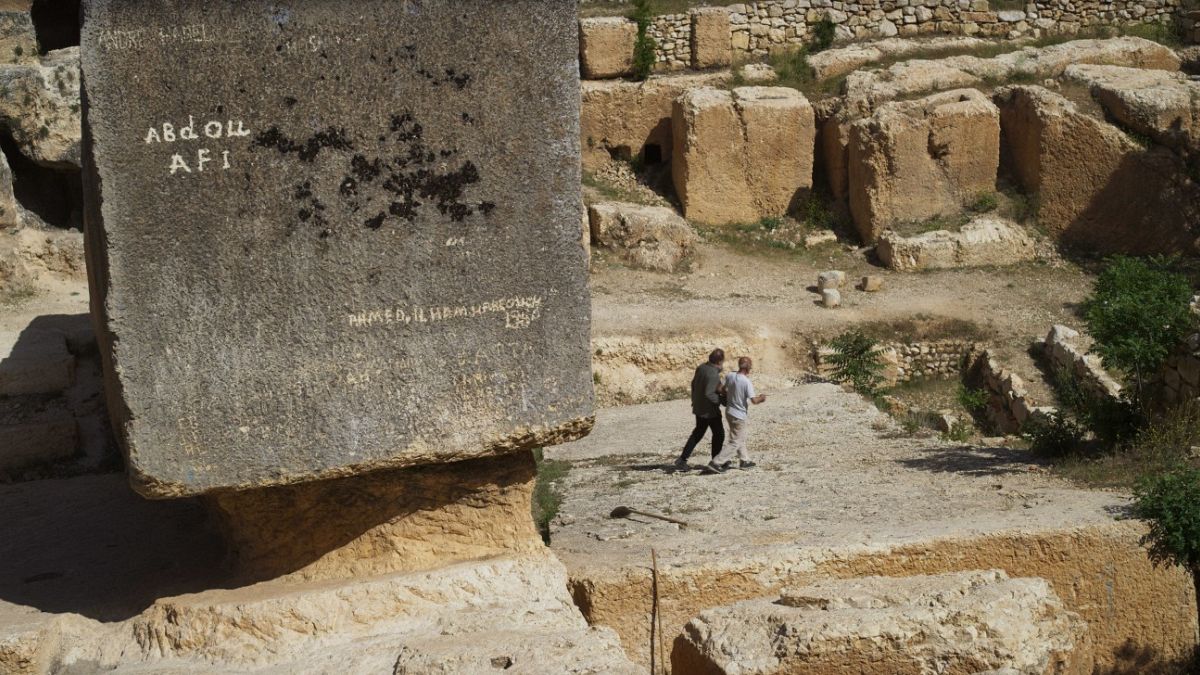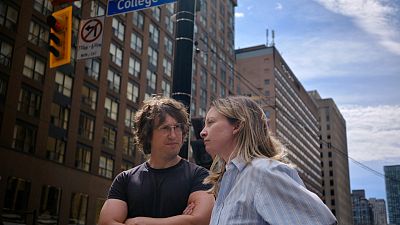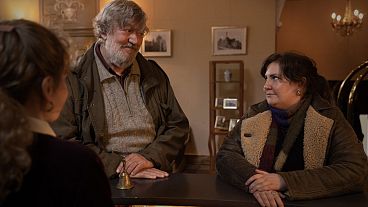A magnificently realised piece of meditative cinema about finding "a new idea of beauty".
A film whose title sounds like a Transformers reject and billed as a “journey into the realm of materials from which human dwellings are made: concrete and its predecessor, stone” may not be everyone’s idea of a good time at the talkies.
But the Berlinale has a way of surprising you, reminding you to never judge a film by its title – or its ponderous logline.
Architecton is the latest film by celebrated Russian non-fiction director Victor Kossakovsky, and it deals with rocks.
Exploding. Mined. Grounded. Turned into concrete - the world’s second most used substance in the world after water. It provides the filmmaker with ample material for one of the most visually awe-inspiring films you’ll see all year.
Architecton isn’t a film you watch – it’s a meditative poem that keeps your eyes glued to the screen, which needs to be the biggest you can find for the full and immersive impact of Kossakovsky’s film to truly resonate. For those familiar with the director behind 2018’s Aquarela, a climate change documentary told through the medium of water, and 2020’s Gunda, a pig’s-eye-view doc, another sensory essay could be expected. However, his most recent film shows his contemplative skills at their peak.
From war-torn Ukraine to Turkey and Lebanon, we observe the evolution of natural and manmade structures. With no commentary, Kossakovsky juxtaposes images of bombed apartment blocks, raw materials dug out from mountains, remains of Roman temples, gradually leading to the exploration of how our planet cannot sustain disposable concrete constructions that we build from the fabric of Earth itself, and that there are lessons to be learned from ancient monuments.
The troubling yet visually arresting dichotomy between past and present ruins, ancient monuments and modern buildings that were never meant to last forever, needs no voiceover to guide you towards understanding that something has been lost over time.
Shot in ultra-high frame rate, Achitecton is a monumental sight to behold, with every sharp detail mesmerising the viewer. Working with regular director of photography Ben Bernhard, Kossakovsky captures structures in ways never before seen, utilising drone photography to jaw-dropping effect. Equally entrancing are certain monochrome shots which feel calming yet apocalyptic. These ominous segments impress by their crispness and how they present gorgeously nightmarish visions of eroded or destroyed structures that maintain beauty through time.
The marriage of Bernhard’s cinematography with composer Evgueni Galperine’s transfixing score – which isn’t without recalling some of Mica Levi’s best work – makes Architecton all the more intoxicating, with an additional otherworldly component that somehow nourishes the recurring metaphor of life cycles.
We destroy, to produce, to build edifices that were not meant to last.
This cycle is visually present in a “magic circle” that famed Italian architect Michele De Lucchi is erecting in his garden. Throughout the film, he is seen alongside two other collaborators making a stone structure - one, we’re told, without any need or practicality.
This comes up again in the film’s epilogue.
While the film doesn’t spoon-feed any meaning, the final act does spell things out a bit (too much?). While it can initially seem jarring or contrary to the meditative dirge fizzling with meaning, the explanation that we mine ourselves to our own downfall through brief dialogue between the director and De Lucchi bluntly but perhaps necessarily emphasises the film's thesis.
Architecture is a way of seeing how we live, how we behave, and most of all, how we have to question ourselves on the things we build. De Lucchi estimates the average lifespan of modern concrete structures at just 40 years, and laments the current state of contemporary architecture. At a time where “sustainable architecture” is all the rage, real sustainability was being achieved in antiquity, and our current practices with regards to concrete reduce us to numbing uniformity.
Will our structures nourish the planet or destroy it?
This elegiac tone poem transfixes you into thought, offering a different way of seeing stones, rocks and ruins.
“We need to find a new idea of beauty,” says De Lucchi.
Through this magnificently realised piece of meditative cinema, Kossakovsky may have found the perfect way of delivering that message.



